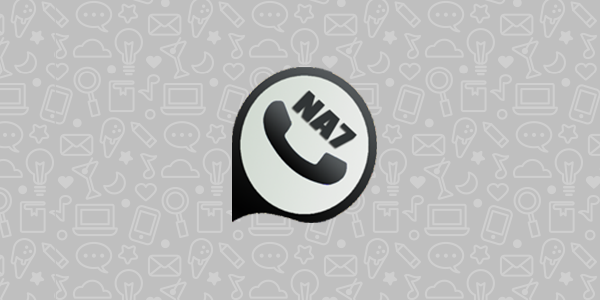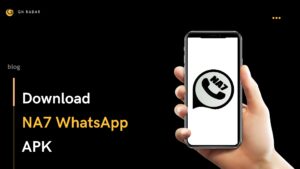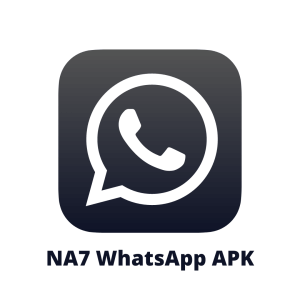WhatsApp has become an essential communication tool for billions of people worldwide. Its user-friendly interface, end-to-end encryption, and extensive features have made it a go-to messaging app for individuals and businesses. However, as with any popular platform, alternative versions offer additional functionalities or customization options. One such variant is NA7 WhatsApp.
NA7 WhatsApp is a modified version of the official app that aims to enhance the user experience by introducing new features unavailable in the original application. While some users may find these added capabilities appealing, it’s crucial to understand how they compare against those offered by the official version before making a switch.
Privacy and Security:
One of the primary concerns when using any messaging app is privacy and security. The official version of WhatsApp boasts end-to-end encryption on all messages sent between users, ensuring that only intended recipients can access their content. This level of security provides peace of mind, knowing that your conversations remain private.
On the other hand, while NA7 offers enhanced privacy measures like anti-ban protection or hiding online status from specific contacts – there are potential risks involved in using unofficial variants like this one. Modified apps might compromise data integrity or introduce vulnerabilities since they bypass rigorous testing conducted by developers behind official releases.
Features:
Official WhatsApp offers an array of practical features catering to various needs efficiently; however, certain limitations exist within its framework, too.
For instance:
- File sharing: Users can send documents (PDFs), images/videos/audio files up to 100MB via both applications.
- Group chats: Both support creating groups to add multiple participants simultaneously.
- Voice/Video calls: These functions work seamlessly on both platforms, allowing high-quality audio/video conversations over Wi-Fi or cellular networks.
However, NA7 introduces several unique additions, which include customizable themes/backgrounds/fonts, etc., enabling greater personalization compared to what’s available in the official version.
User Interface and Experience:
The user interface determines how comfortable users feel while navigating an application. Official WhatsApp has a clean, intuitive design that is easy for new and experienced users to understand. Its simplicity ensures efficient communication without unnecessary distractions.
NA7 WhatsApp takes customization options up a notch by allowing users to modify themes, fonts, and colours or even hide some aspects of the app’s interface. This level of personalization can appeal to those who prefer tailor-made experiences; however, it may also lead to compatibility issues with future updates or security concerns due to its unofficial nature.
Reliability and Updates:
Official WhatsApp benefits from constant support from its developers, who work diligently on bug fixes, performance improvements, and introducing new features based on user feedback. Regular updates ensure stability as well as enhanced functionality over time.
In contrast:
NA7 lacks the same level of reliability when it comes to receiving timely updates since it depends solely on individual developers’ efforts rather than being backed by an entire team explicitly dedicated to maintaining/improving such software.
This could result in delayed bug fixes/security patches, leaving your device vulnerable compared to the official release, where prompt action is taken if any vulnerabilities are discovered.
Conclusion:
While NA7 WhatsApp might seem enticing due to additional customizability options not found within the original app, one must consider several factors before switching. Privacy concerns arise when using modified versions like NA7, which bypass official channels, potentially compromising data integrity/security measures implemented by trusted sources.
Moreover, Official releases provide consistent reliability/updates, ensuring optimal performance while minimizing risks associated with outdated/out-of-sync applications. Ultimately, It involves balancing personalized experience and privacy/reliability trade-offs depending on individual preferences/needs.








